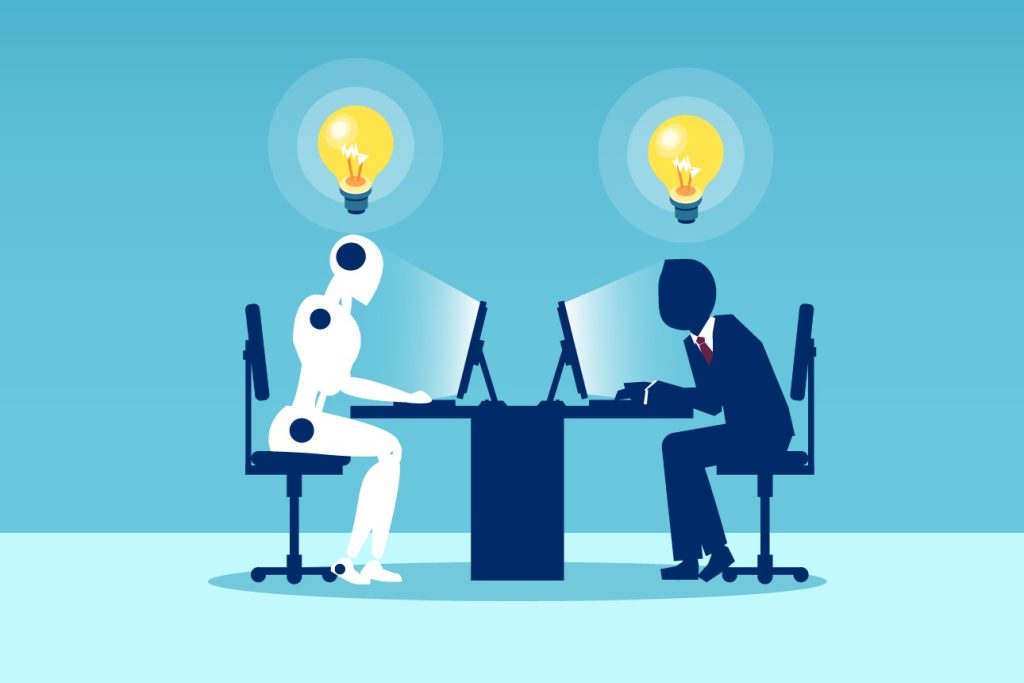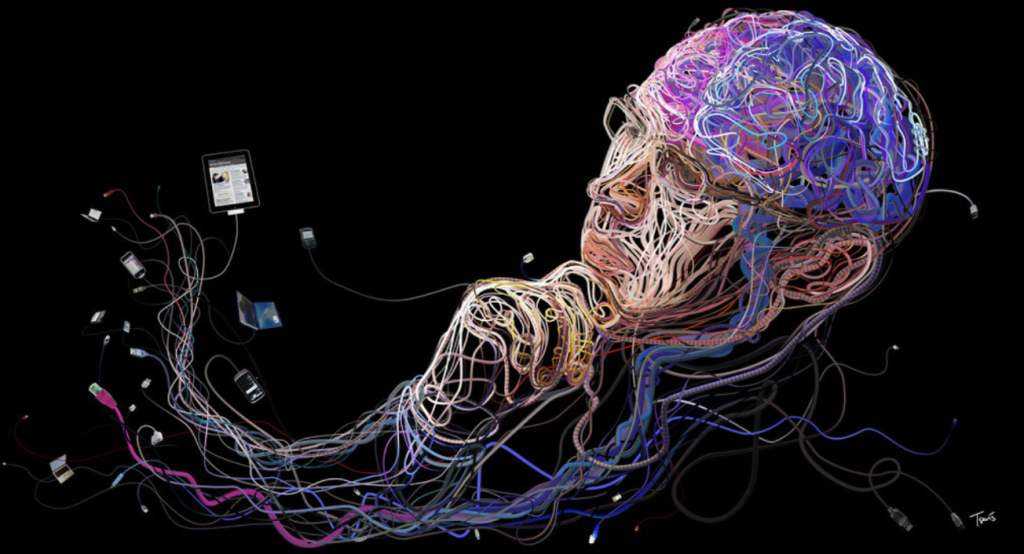
What does it mean to be intelligent? And why do we care so much about being intelligent? As a rule of thumb, if you can recite the alphabet backwards while standing on a single leg, then one might consider you to be fairly sharp. More practically, Intelligence is a human construct that implies an underlying reality. We use it to perceive and infer information, think critically, problem-solve, and offer creative and innovative solutions to given problems. Although typically associated with humans, intelligence is not exclusive to us. We see intelligence in many things such as other organic beings, ideas, concepts, laws of nature, etc.
The 21st century has been a period of rapid change in our apprehension of what an intelligent system is capable of. Computers have in many ways revolutionized our reasoning processes and problem solving methods, so much so that we now begin to see these systems as standalone intelligent entities. Artificial Intelligence (AI), certainly a contender for buzzword of the year, has been the latest technological marvel to take us by storm. In 2015, Google DeepMind’s latest creation “AlphaGO” defeated the then Go (Chinese board game) champion, and has only ever lost 1 match since. Nowadays, ChatGPT is making countless headlines with its almost magical ability to recant specific information, code, and create original texts.

It seems like computers are getting smarter, and exponentially so. Smarter than humans perhaps? In some ways yes and in others no. Computers are great at processing lots of information, quickly committing things to memory and performing fast computations, but their scope of ability is far too narrow and limited. On the other hand, humans are experts at ‘parallel processing’. We can call back on past experiences, memories, instincts, and use many different sources of information at the same time to make inferences and decisions.
These differences have separated us until now, but with the way AI is trending, this line may start to get more blurry. We have long stood atop the intellectual mountain. Even the dumbest toddler displays more reasoning skills than a full grown chimpanzee, but there is a new player to the game now. Our intellect is going to be challenged by AI in ways that we have never experienced before, and what this will represent for our own cognition and intellectual abilities is an important question to explore.
The concern: Computers are going to do the thinking for us
Current computers are undeniably better at performing long computations with lots of information, but they can only operate in a very restricted manner. However, as their hardware evolves and their algorithms get better, one can only imagine that their abilities will extend to increasingly complex and abstract tasks, previously thought to be reserved for human beings.
In a must-read article by the former US secretary of state, Henry Kissinger discusses the possible future implications that highly effective generator and decision algorithms could have on our thinking and cognition. He also goes with the example of the Go game, where the AlphaGO algorithm was able to conceive new strategies which were unprecedented to human players. However, the algorithm does not know this, it only knows the mathematics that led it to a certain output. What does the role of the human now become in this matter? The AI system is clearly superior at this game than the human, so does he try to mimic these strategies, or to learn them? And what happens when the AI gets so advanced that the human is no longer able to interpret and understand what the algorithm is doing? Kissinger states: “By treating a mathematical process as if it were a thought process, and either trying to mimic that process ourselves or merely accepting the results, we are in danger of losing the capacity that has been the essence of human cognition.”
There now seems to be a growing concern that as AI gets more advanced, we are slowly going to degrade our ability to create original thought. We are all going to rely on these machine outputs without understanding or questioning their results, the same way Borgs follow their hive-mind in Star Trek, a curious analogy derived from a 2021 study inspecting the effect of AI recommender systems on humans.
Technology can change our brains, but for the better?
Technology is certainly changing our behavior but it may also be physically changing our brains.
A 2017 paper published in nature showed that reliance on GPS systems has already led to decreased activity in brain regions associated with spatial orientation and navigation, implying actual structural changes in our brains. Another study coined the term “Google effect”, showing that people were more likely to remember where a piece of information is rather than what that piece of information was. Since information is so readily available, we tend to have less commitment to memorizing it.
Behavior and brain are intertwined, we are guided and influenced by the technology that surrounds us. Is this necessarily good or bad? We think it can be both. Linking back to the previous example, a study found that London taxi drivers, who drive without the use of GPS, perform worse in obtaining new spatial memories compared to London bus drivers. This is likely due to the fact that the hippocampal area, which plays a big role in memory, is mostly saturated with information about the roads of London. This may suggest that whenever technology can take over certain tasks, it may free up space in our brain to focus on developing other skills.

AI is not the end of human enlightenment
So is AI really going to take over our thinking and make us dumber? Even though the concerns raised are very valid, we argue that this probably won’t be the case. For starters, it is important to look at the past when we want to inquire into the future. Humanity has known many different technological turning points throughout its time and they have generally always led to greater enlightenment.
Books have revolutionized the way in which we store information and pass it on to others. The internet and google are doing the same thing but to a more heightened degree. Our brains are no longer forced to memorize and can spend more energy connecting the information and making inferences. Will AI be any different? One might argue that AI systems will get so good at abstract problem solving that it would only make sense for humans to step back and let the AI do all the critical thinking for us. However, this seems to go against our innate nature as humans. We find deep satisfaction in understanding the world around us, and we desire control over our own thought processes. Humans do not like feeling obsolete, and without pushing the boundaries of our intellectual abilities, we find that we grow without purpose.
Our definitions of intelligence will change
As shown before, the definition of intelligence has changed over time and continues to evolve. Historically, intelligence was primarily viewed as a measure of an individual’s ability to perform tasks and solve problems, often in a logical or mathematical context. However, as new technologies have emerged and our understanding of the human brain has advanced, the definition of intelligence has expanded to encompass a wider range of cognitive abilities.

Intelligence in the year 1600 did not carry the same meaning as it does now, nor will it carry the same meaning in 2400. As AI continues to become a dominant force in the realm of information, logic and problem solving, perhaps we will come to place more importance and value on intellectual qualities that are innately more human such as abstraction, self-awareness, creativity, or emotional intelligence.
Many already foresee a natural symbiosis between man and machine forming in the workplace, in order to best utilize the abilities of each. Human AI collaboration will become a commonplace practice for us to be the most successful.
In conclusion
In short, will we become dumber? Compared to ourselves, no, our inherent and historic desires for enlightenment will want otherwise. Compared to AI? We are already dumber in some ways, and we are much smarter in others. Our innate abilities ushered by our biology or hardware will see humans and AI flourish in different facets of intelligence, hopefully to the ultimate benefit of humanity.


